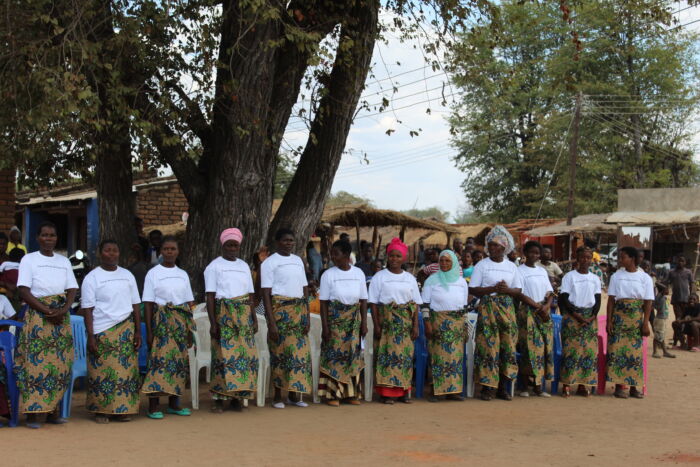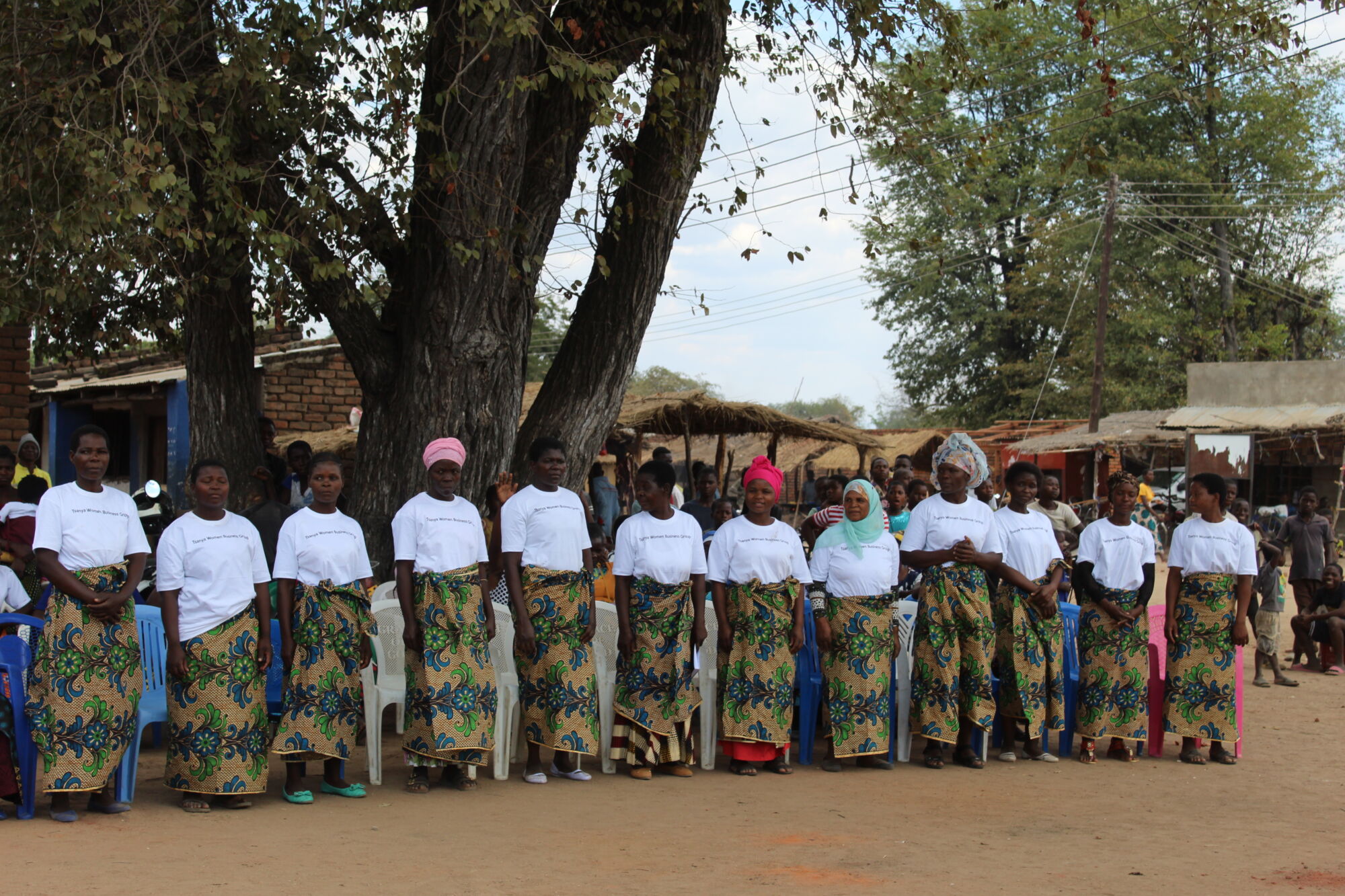Namkumba Extension Planning Area is one of the rural communities nestled with cotton fields in Mangochi District, Malawi. Despite growing maize as a staple, most community members are hard at work, extensively focusing on smallholding cotton cultivation. The women of Tsanya Business Group have been toiling tirelessly under the scorching sun, dedicating their lives to the cultivation of cotton. For generations, their families have relied solely on cotton farming as the primary source of income, often struggling to make ends meet.
The Women Economic Empowerment in the Cotton Value Chain project was an opportunity for the women to transform their lives and break free from the limitations of cotton farming alone. Filesi Paseli, one of the gender champions in the group says, “I used to think cotton farming was the only option for us, but we realized we could do more with our skills and determination as women”.
The lives of female cotton farmers were very insecure and uncertain. Following the project’s training in economic empowerment, and women’s rights, Tsanya women’s group began to explore alternative income streams that complemented their cotton farming expertise. They ventured into poultry production, bakery, and restaurant businesses. Miriam Zimphwayi, Treasurer for the group says, “We arrived at this idea for us to diversify our sources of income while adding value to the resources we already possess”.

“We have been involved in the Sustainable Cotton Project for the last 3 years and the project empowered us to start our own Village Savings and Loans so that we can source funds to buy our cotton inputs. Initially we used to share out this money but this time around, after trainings in business management and entrepreneurship and income diversification under the WEEVC project, we decided to use the shares to start our businesses instead of sharing the money,” narrates Miriam.
Tsanya is just one of successful business in Nankumba, there are over 33 business groups for women in this area. The businesses range from commodity trading, horticulture production, poultry farming, goat farming and bee keeping. “This area is a Muslim dominated area where women are not regarded as part of development. But through the WEEVC project, this narrative is changing as we see men supporting their women to be part of the businesses, traditional leaders creating safe space for women to succeed like today, the bakery, and the restaurant belongs to a Group Village Headman who has rented it out to these women, this is a change that we have been advocating for,” Jones further detailed.
Tsanya Women’s Group has established a poultry farm where they are rearing local chickens. They are also using the chicken dung to produce manure to be used in cotton fields as part of organic cotton production. Through collaborative efforts, the women have been taught effective farming techniques, proper animal care, and how to maximize production. The women are not only expanding their skillset, but they are also a model for other members of the community.

Tsanya women’s group journey from cotton farming to poultry production, bakery, and restaurant businesses is a symbol of transformation and empowerment. It demonstrates the power of unity, determination, and continuous learning in paving way for a brighter and more equitable future. Through their courage and innovation, they are slowly turning what was once a simple cotton field into a vibrant and thriving community where women are the driving force behind a diverse and sustainable economy.
